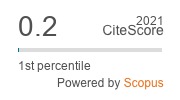Analysis of Congestive Heart Failure ECG Signals Using Hilbert-Huang Transform
DOI:
https://doi.org/10.17762/msea.v65i.1365Abstract
In this paper, the analysis of Congestive Heart Failure (CHF) electrocardiogram (ECG) signals has been performed using Hilbert-Huang Transform method for better diagnosis. ECG is a diagnostic tool that is routinely used to assess the cardiac abnormalities. CHF occurs when the normal pumping action is impaired, and the heart cannot pump enough blood to meet the body’s needs. Signals of 10 CHF patients from Beth Israel Deaconess Medical Center (BIDMC) Congestive Heart Failure Database and signals of 10 healthy individuals from Fantasia Database from Physiobank were collected. Hilbert-Huang Transform (HHT) based analysis method is used in this study to examine the time-frequency-energy characteristics of Congestive Heart Failure ECG signals for efficient interpretation of various parameters of ECG signal. The ECG signal is decomposed to numerous intrinsic mode functions by empirical mode decomposition and the Hilbert energy spectra, instantaneous frequency, instantaneous amplitude are obtained using R environment. The statistical parameters like mean, standard deviation, energy of IMFs are calculated. The ratios of the energy for several IMFs of healthy and CHF ECG signals with respect to their corresponding total referred energy are compared and results are presented for better clinical diagnosis.




